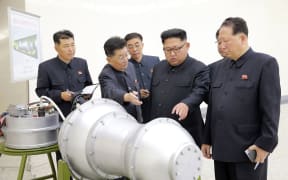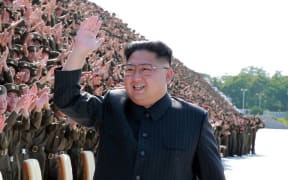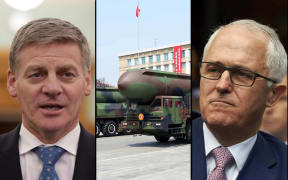US Defence Secretary Jim Mattis has threatened a "massive military response" to any attack on the US or its allies after North Korea conducted its most powerful nuclear test to date.
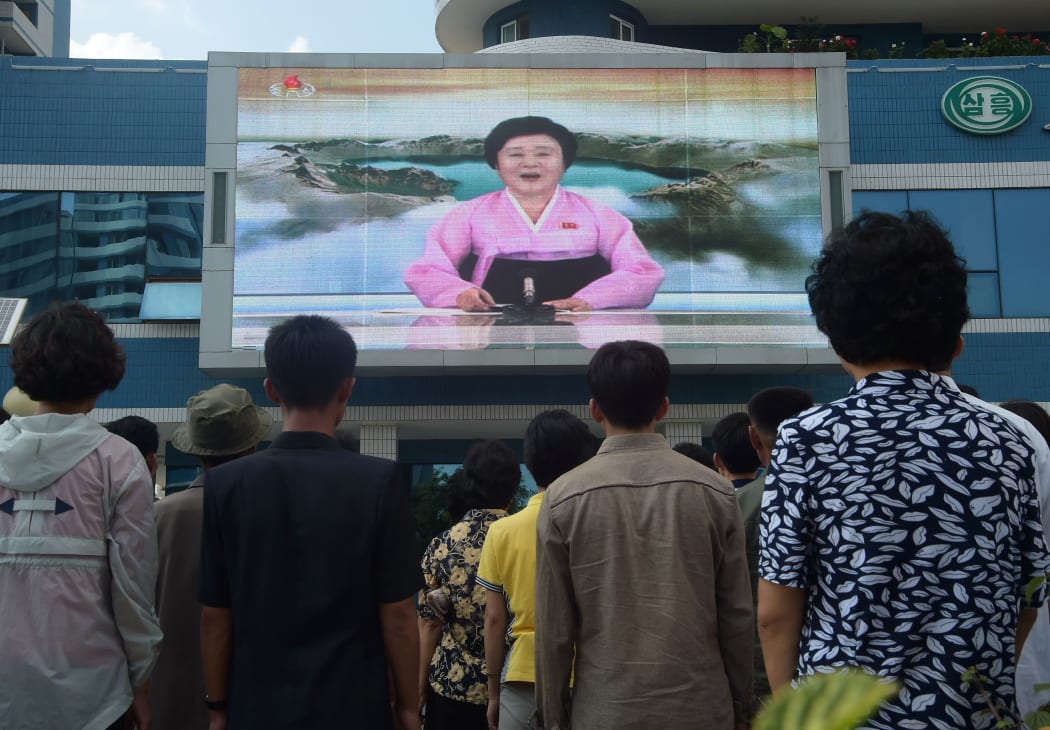
Pyongyang residents watch a presenter on North Korean state media announcing a hydrogen bomb test Photo: AFP
"Any threat to the United States or its territories, including Guam, or our allies will be met with a massive military response, a response both effective and overwhelming," said Mr Mattis outside the White House.
Washington was not looking for the "total annihilation of a country, namely North Korea", he said. "But as I said, we have many options to do so."
North Korea's sixth nuclear test appeared to be the biggest to date. Pyongyang said it had successfully trialled on Sunday an advanced hydrogen bomb that could be loaded onto a long-range missile.
The United Nations Security Council is due to meet to discuss the nuclear test. Mr Mattis said the members of the council "remain unanimous in their commitment to denuclearisation of the Korean Peninsula".
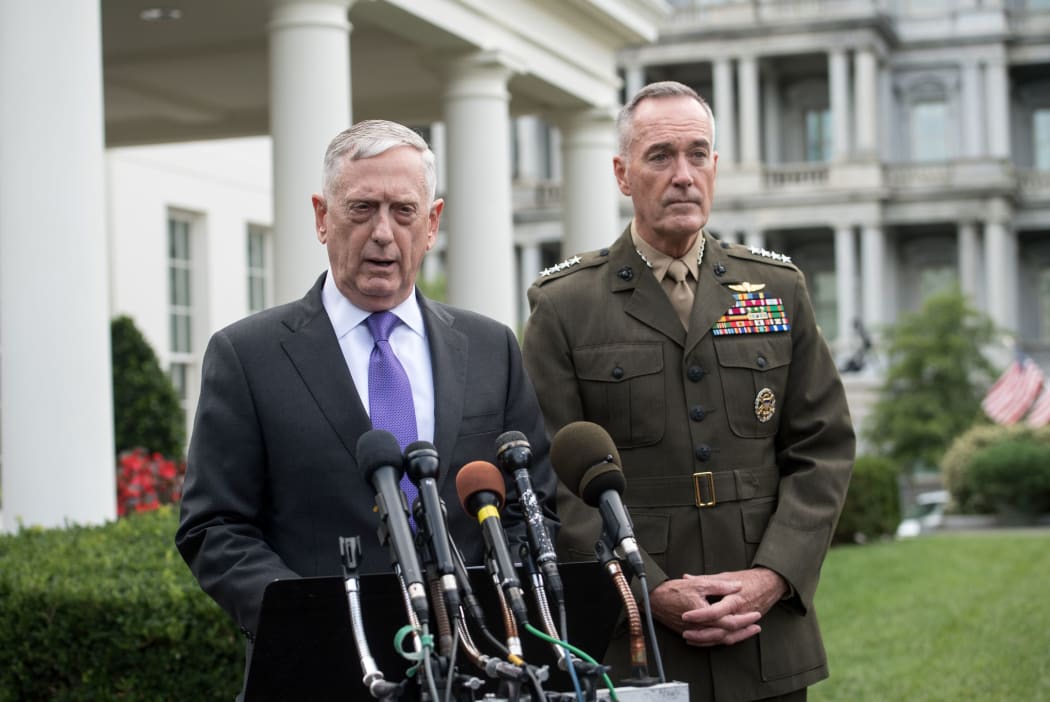
US Defence Secretary Jim Mattis, left, outside the White House with Joint Chiefs of Staff chairman Joseph Dunford Photo: AFP
Donald Trump earlier in the day refused to rule out military action and threatened to cut off trade with any country doing business with Pyongyang.
The US president tweeted that North Korea's "words and actions" were "very hostile and dangerous".
"North Korea is a rogue nation which has become a great threat and embarrassment to China, which is trying to help but with little success. The United States is considering, in addition to other options, stopping all trade with any country doing business with North Korea," he said on Twitter.
The president also appeared to rebuke ally South Korea, which faces an existential threat from North Korea's nuclear programme.
"South Korea is finding, as I have told them, that their talk of appeasement with North Korea will not work, they only understand one thing!" Mr Trump said in an early morning tweet.
Asked while leaving a church service whether the US would attack North Korea, he replied: "We'll see."
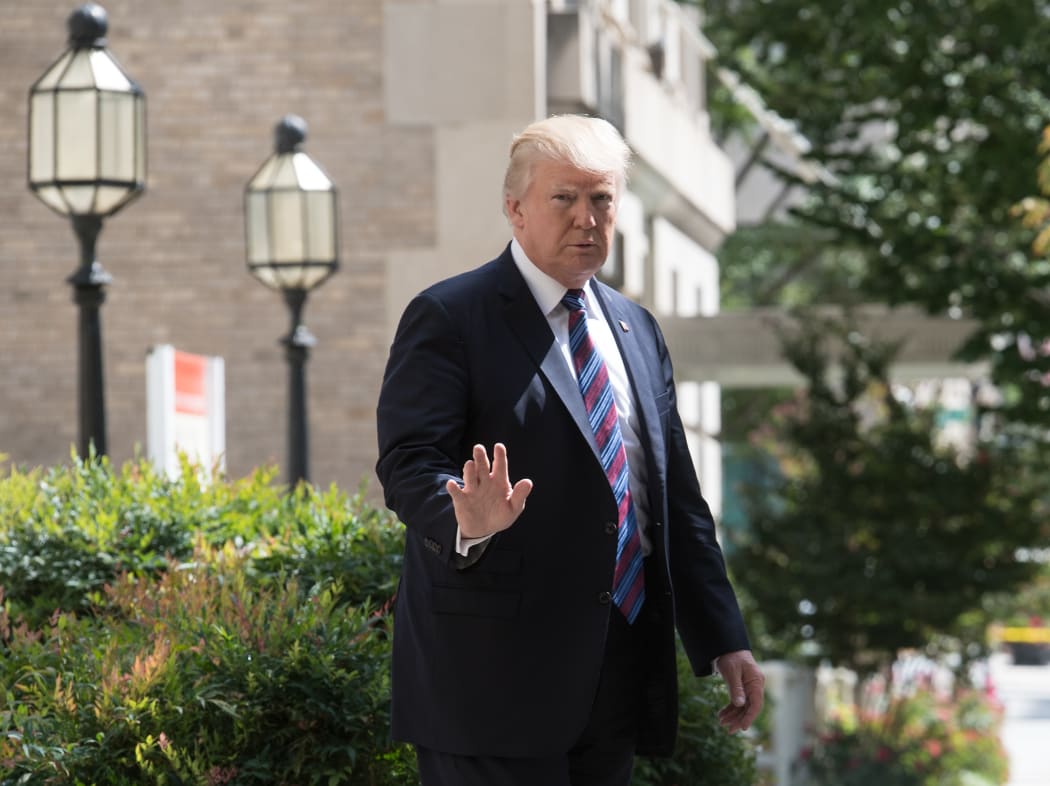
Donald Trump issued a trade threat against North Korea and appeared to rebuke South Korea for "talk of appeasement". Photo: AFP
Chinese President Xi Jinping and Russian President Vladimir Putin, who met on the sidelines of a BRICS summit in China, agreed to "appropriately deal" with North Korea's nuclear test, the Xinhua news agency reported.
North Korea last carried out a nuclear test in September 2016. It has defied UN sanctions and international pressure to develop nuclear weapons and test missiles that could potentially reach the US.
The latest test on Sunday registered with international seismic agencies as a man-made earthquake. Japanese and South Korean officials said it was about 10 times more powerful than the tremor picked up after North Korea's last nuclear test.
There was no independent confirmation the detonation was a hydrogen bomb, but Japan's chief cabinet secretary Yoshihide Suga said Tokyo could not rule out such a possibility. A US intelligence official, speaking on condition of anonymity, said the US had no reason to doubt it was an advanced nuclear device being tested.
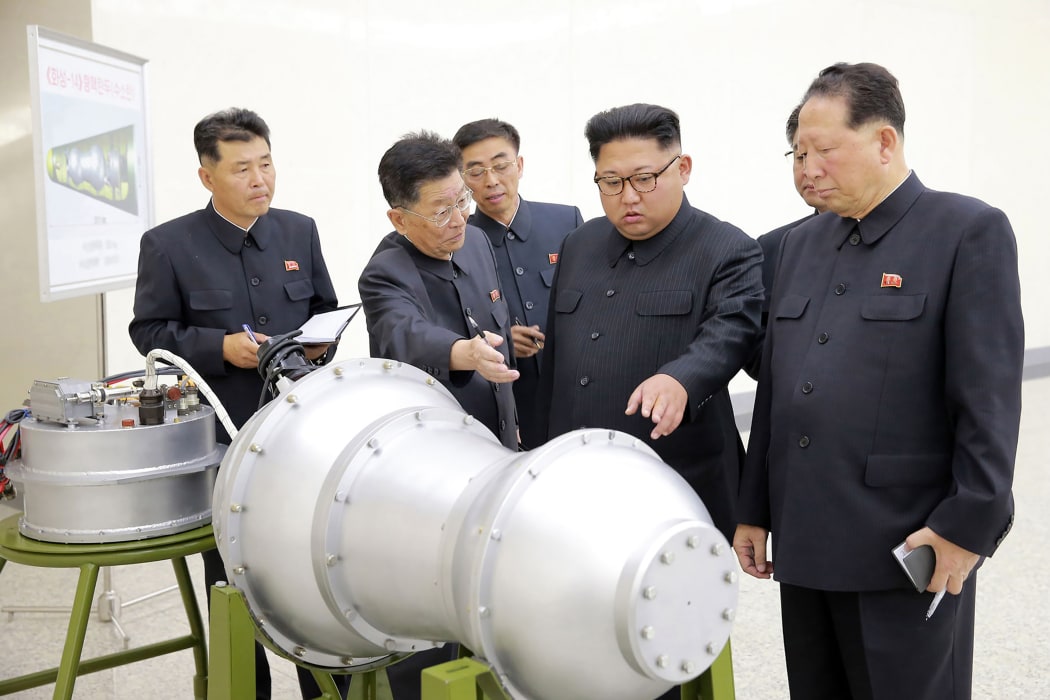
North Korean state media showed leader Kim Jong-un inspecting what it said was a hydrogen bomb. Photo: AFP/KCNA via KNS
- Reuters / BBC
